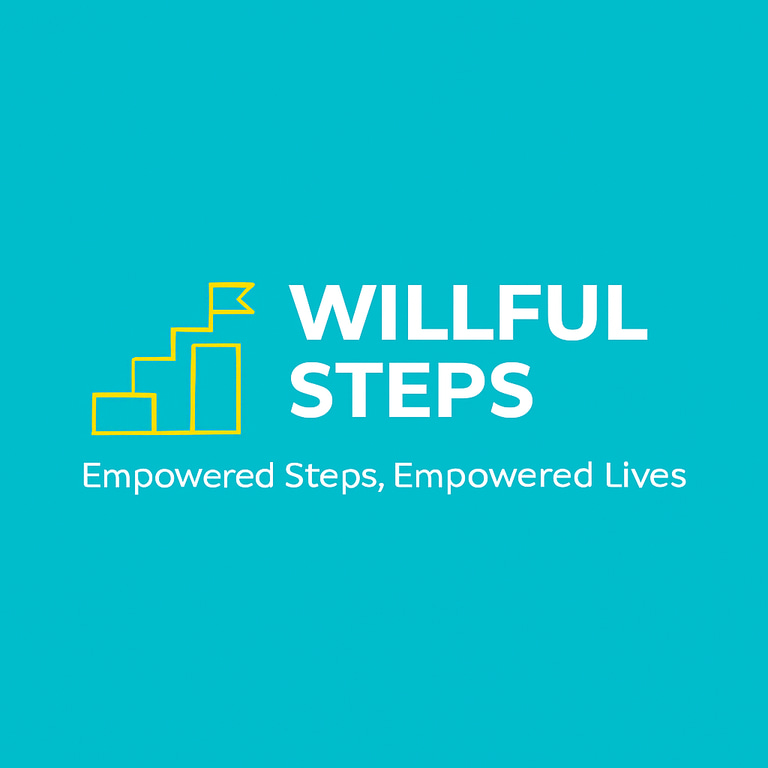Top Tips for Leaders Self-Managing ADHD (and Why Getting a Diagnosis Matters)
Life as a leader with ADHD is a journey not a destination
Michael J Perez
5/7/20253 min read


If you’re a leader with ADHD, you probably know the feeling: ideas firing at lightning speed, energy to burn, but sometimes struggling to keep the wheels on the bus.
The good news?
With the right strategies and support, ADHD can become a genuine leadership superpower.
Here are some practical tips for self-managing ADHD as a leader, plus why seeking a diagnosis can be a game-changer and how Willful Steps can help you thrive.
1. Externalise Your Executive Functions
ADHD brains are wired for creativity and fast thinking, but things like planning, prioritising, and remembering can be inconsistent. Don’t rely on memory alone. Use visual dashboards (think Trello or Asana), whiteboards, sticky notes, or phone reminders. Set up time-blocked calendars with alarms and schedule quick daily or weekly check-ins with a trusted colleague. These tools take the pressure off your brain and keep you focused on what matters.
2. Turn Insight Into Action-Quickly
It’s easy to get stuck in “I should do this” mode. Instead, translate insight into action. For example, if you need to prioritise, don’t just think about it, block out 15 minutes on Monday morning to use a tool like the Eisenhower Matrix. Snap a photo of your sorted list and keep it visible. Action beats intention every time.
3. Work With Your Brain’s Motivation System
ADHD brains run on interest, not obligation. That’s why boring admin tasks often get left behind. Make tasks more engaging by turning them into short games, connecting them to your values, or working alongside someone else (body doubling). This keeps your motivation high and your productivity humming.
4. Redesign Your Relationship With Time
Time blindness is real for many with ADHD. Break goals into daily or weekly chunks, use visual timelines, and create artificial deadlines. Public commitments can also help create urgency and keep you accountable.
5. Prioritise Mindfulness and Self-Care
Mindfulness and self-care aren’t just buzzwords. They help regulate emotions and reduce impulsivity. Try deep breathing, meditation, or gratitude journaling. Prioritise sleep, regular exercise, and activities you enjoy to keep your energy and focus up.
6. Set Boundaries and Stick to Routines
Clear boundaries reduce stress and over-commitment. Be direct about your needs, say no when you need to, and set realistic goals. Routines like consistent sleep and work hours help anchor your day and minimise distractions.
7. Play to Your Strengths
Leaders with ADHD often excel at innovation, big-picture thinking, and high energy. Use these strengths to inspire your team, generate creative solutions, and boost morale. Recognise that your unique wiring can be an asset, not a liability.
The Benefits of Getting an ADHD Diagnosis
Let's get real for a moment... You are likely reading this without having been diagnosed. A formal diagnosis isn’t just a label-it’s a roadmap. It helps you understand your behaviours, access tailored support, and explain your needs to others. When dealing with psychologists and psychiatrists, it's really important to deal with someone who is known and respected, and my advice is to avoid the ADHD diagnosis over the phone chop shops that are making the news at the moment. For many, when done right, it’s a relief to know there’s a valid reason for past struggles, reducing feelings of guilt or shame.
Why Coaching (and Why Willful Steps)?
Managing ADHD as a leader is a journey, not a destination. Coaching provides the tools, accountability, and encouragement you need to harness your strengths and overcome challenges. Willful Steps offers tailored ADHD and executive function coaching, helping you move from overwhelm to clarity and confidence. Our strength-based approach is all about empowering you to thrive-at work and beyond.
Are you ready to take the next step?
Reach out to Willful Steps for a no-obligation chat about how coaching can help you lead with clarity, energy, and purpose.
This blog is for information only and not a substitute for professional advice.
For personalised support, consult your doctor or a qualified health professional.
Willful Steps
Unlock the potential within your team, clients and community.
Focus
Thrive
michael@willfulsteps.com
0434 318 542
© 2025. All rights reserved.
DISCLAIMER
The information contained on this website and provided through our coaching and training services is for general informational and educational purposes only.
Not Professional Advice The content on this site does not constitute legal, financial, medical, psychological, human resources, or professional advice. Nothing on this website creates a coach-client relationship. Always seek the advice of qualified professionals regarding your specific circumstances.
No Guaranteed Results Individual results from coaching and training vary significantly based on personal circumstances, effort, and implementation. We do not guarantee specific outcomes, behavioural changes, career advancement, or organisational improvements.
Neurodiversity Information Information about neurodivergent conditions (ADHD, autism, dyslexia, etc.) is general in nature and not diagnostic. We do not provide medical diagnoses or treatment. Consult qualified medical professionals for assessment and treatment of neurodevelopmental conditions.
Workshop Content Our workshops and training materials are designed for educational purposes. Implementation of strategies discussed is at the discretion of participants and their organisations. We recommend consulting with HR professionals, occupational therapists, or medical practitioners when making workplace accommodations.
Third-Party Links This website may contain links to third-party websites. We are not responsible for the content, accuracy, or privacy practices of external sites.
Limitation of Liability To the maximum extent permitted by law, Willful Steps and its directors exclude all liability for any loss, damage, or expense arising from the use of or reliance on information contained on this website or provided through our services.
Copyright © 2026. All rights reserved. No part of this website or our materials may be reproduced without prior written permission.
Governing Law This disclaimer is governed by the laws of Western Australia, Australia.
Last updated: 01/01/2026
